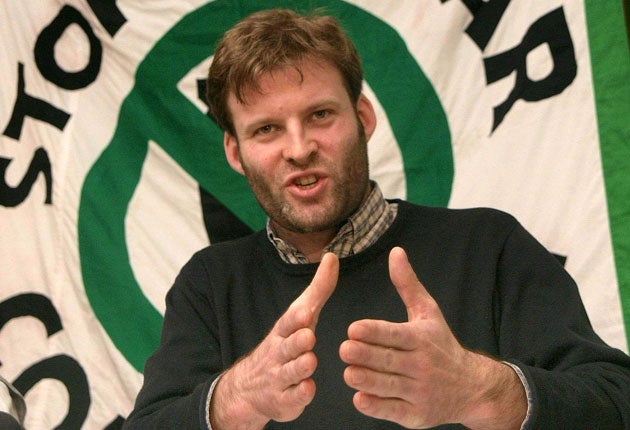Torture inquiry will 'not cover US rendition'
Campaigners condemn decision not to include 'murky' issue of detainee transfers in investigation as 'only doing half the job'

An inquiry into Britain's involvement in torture during the "war on terror" will not investigate whether UK forces handed over suspects to be transported to other countries for interrogation by the Americans – despite David Cameron's assurance that it would probe all aspects of the controversy.
The head of the Detainee Inquiry ordered by Mr Cameron has confirmed that he will not consider the issue of detainees transferred between forces fighting in Iraq and elsewhere, which has been identified by many critics as one of the murkiest elements of the "extraordinary rendition" saga.
Campaigners last night condemned the decision, which contradicts assurances made by the Prime Minister when he set up the inquiry last year.
Tory MP Andrew Tyrie, chairman of the all-party group on extraordinary rendition, said: "To hold an inquiry into rendition without fully addressing detainee transfers is only doing half the job. We know that two detainees captured by UK forces, and... handed over to the US were rendered to Bagram in 2004. But we do not know how this was allowed to happen, if other instances have similarly slipped through the net, nor if the procedures in place are sufficient to prevent this from happening in the future."
Mr Cameron told MPs last July that the inquiry would be allowed "to look at all... issues". But, in correspondence seen by The Independent on Sunday, the chairman of the inquiry, Sir Peter Gibson, has now confirmed that "military detention operations should not be one of [its] key themes".
The Ministry of Defence (MoD) originally denied that its forces had been complicit in US rendition operations, despite claims from a former SAS soldier, Ben Griffin, that the UK had handed captives over to the US in the knowledge that they would be rendered (ie, transported) or mistreated.
Two years ago, ministers were forced to admit that two detainees captured by UK forces in Iraq and handed over to the US in 2004 had subsequently been transferred to Bagram. Campaigners had hoped the inquiry would establish whether other cases had slipped through the net – or whether the handovers had taken place on a systematic basis.
But, in a letter to Mr Tyrie, Sir Peter said: "Allegations relating to military detention operations post-2003... are being covered under separate arrangements by the MoD."
Concerns over the fate of efforts to get to the truth about rendition emerged after a collection of papers released by the Iraq inquiry raised fresh questions over the campaign to remove Saddam Hussein in 2003.
A series of top-secret documents revealed widespread reservations about Britain's involvement in the conflict, but a confidential intelligence assessment on the impact of the invasion – produced only months before the 7/7 attacks – also warned that it had helped to stir the UK's "extremist community" into action.
The Joint Intelligence Committee briefing added: "The Iraq conflict has resulted in an increase in co-operation between terrorist networks, giving al- Qa'ida leaders access to a broader range of operatives and support that could be used in attacks, including in Europe. Some jihadists who leave Iraq will play leading roles in recruiting and organising terrorist networks, sharing their skills and possibly conducting attacks. It is inevitable that some will come to the UK."
Amid the continuing controversy over the conflict, it emerged that a helicopter mysteriously landed at the scene of the weapons expert Dr David Kelly's death shortly after his body was discovered. Dr Kelly's death came soon after he was named as the source of BBC reports questioning the accuracy of a government dossier arguing the case for war in Iraq.
The Hutton inquiry later found that the government weapons inspector committed suicide in woods near his Oxfordshire home.
But the Daily Mail reported that details released under the Freedom of Information Act disclosed that a helicopter landed at the scene, and stayed for five minutes. According to its flight log, the helicopter – said to have been hired by Thames Valley Police – set down at Harrowdown Hill in Oxfordshire at 10.55am on 18 July 2003, 90 minutes after Dr Kelly's body was found by search teams.
The purpose of the flight and who was on board have not been established because details of the flight log have been heavily redacted, the Daily Mail reported. Dr Andrew Watt, who has raised doubts about the circumstances around Dr Kelly's death, told the paper: "If the purpose of the helicopter flight was innocent, one has to ask why it was kept secret."
Subscribe to Independent Premium to bookmark this article
Want to bookmark your favourite articles and stories to read or reference later? Start your Independent Premium subscription today.

Join our commenting forum
Join thought-provoking conversations, follow other Independent readers and see their replies